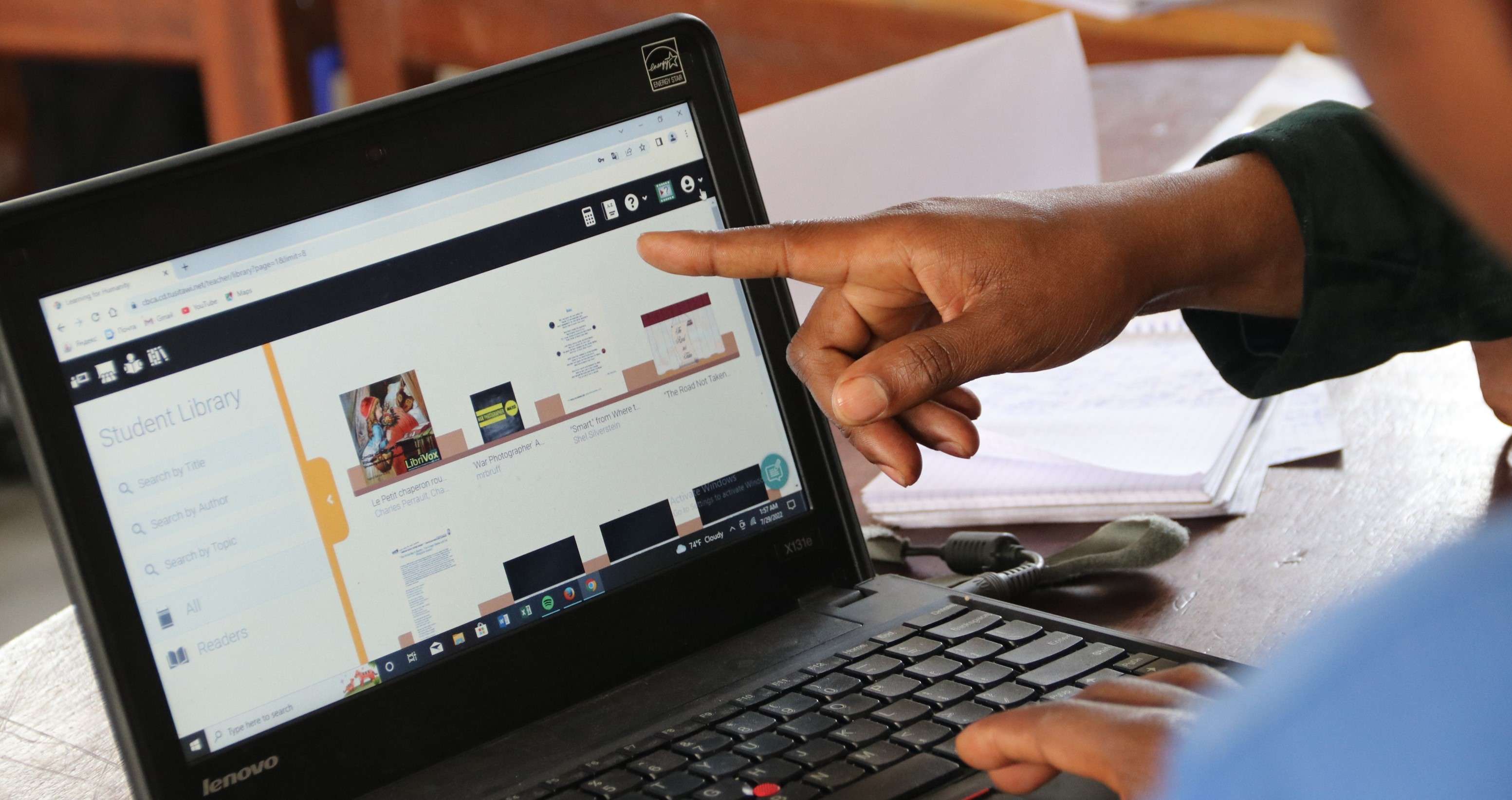
Access to Technology-supported, Gender-sensitive, Self-paced, Digital Learning
Learning for Humanity Inc,
Ansima, a 17-year-old student in the Democratic Republic of Congo was struggling with her schooling. After spending some time away from her studies, she had returned to school at a recuperation centre – an education pathway that provides out-of-school children and young adults with the opportunity to return to their education and prepare to sit their primary and/or secondary exams. Though Ansima spent her afternoons at the school, she found it wasn’t enough time to absorb the material. Homework was also a challenge since she did not have access to a computer or internet to do the necessary research. She considered leaving school out of frustration.
The Democratic Republic of Congo (DRC) has experienced political instability for decades. As a result, 73% of the population lives in poverty on less than $2 US per day. Furthermore, the digital divide causes the DRC to fall behind in the capacity to use technology to provide more opportunities for women and men to access education. Girls are less likely than boys to complete their studies due to competing household responsibilities, a lack of women teachers in schools (who are seen as safer by girls and their families), and because many families prioritize the education of boys above girls. Governments are increasingly looking for technological solutions, and affordable open platforms are an important partner in achieving inclusion and equity goals.

Funded by FIT, Learning for Humanity Inc., along with their local partners Communauté Baptiste Au Centre de l’Afrique (CBCA) tested the deployment of gender-responsive, technology-enabled blended learning for vulnerable girls at recuperation centres through teacher training and an online platform called Tusitawi. Coupled with individualized learning plans, the blended approach aimed to increase engagement by the most vulnerable female learners and improve their self-efficacy for continuing their education, thus reducing dropout rates at recuperation centres and increasing the likelihood that they complete their education. Tusitawi is a unique online platform with gender-sensitive, self-paced, digital learning materials that is open and affordable with a User Interface appropriate for use in low-resource settings and where technological literacy is a challenge.
Through this innovative approach, Ansima acquired a computer for home use, with full access to Tusitawi. As a result, her academic performance and computer literacy skills improved, along with her self-confidence.
“If I don’t understand something at school, I just go and do the research at home. I can plan my time according to my individual learning plan on the Tusitawi. Learning to use a computer has been an unforgettable experience for me.”
Many of Ansima’s peers experienced similar benefits. By the end of the innovation overall self-efficacy scores among female students improved from 78% at baseline to 85%. In addition, 92% of female students reported having made their individual learning plans with their teachers, of whom 85% reported following their individual learning plans which exceeded the target of 80%. Additionally, 93% of female students reported feeling supported by their teachers to succeed in their learning and 96% of female students now feel that their teachers are successful in meeting the needs of girls and boys equally.

Post-training, 72% of 18 teachers demonstrated competence in gender-responsive blended learning compared to just 35% pre- training, and at endline that had increased, through practice, to 100%.
“We don’t want women to be abandoning their studies because of a lack of technological supports. We want to put women in equal footing with men so they can benefit from education, supported by the technology. This project will allow us to expand our reach to other recuperation centres in the CBCA.”
- Marie Jules, CBCA


